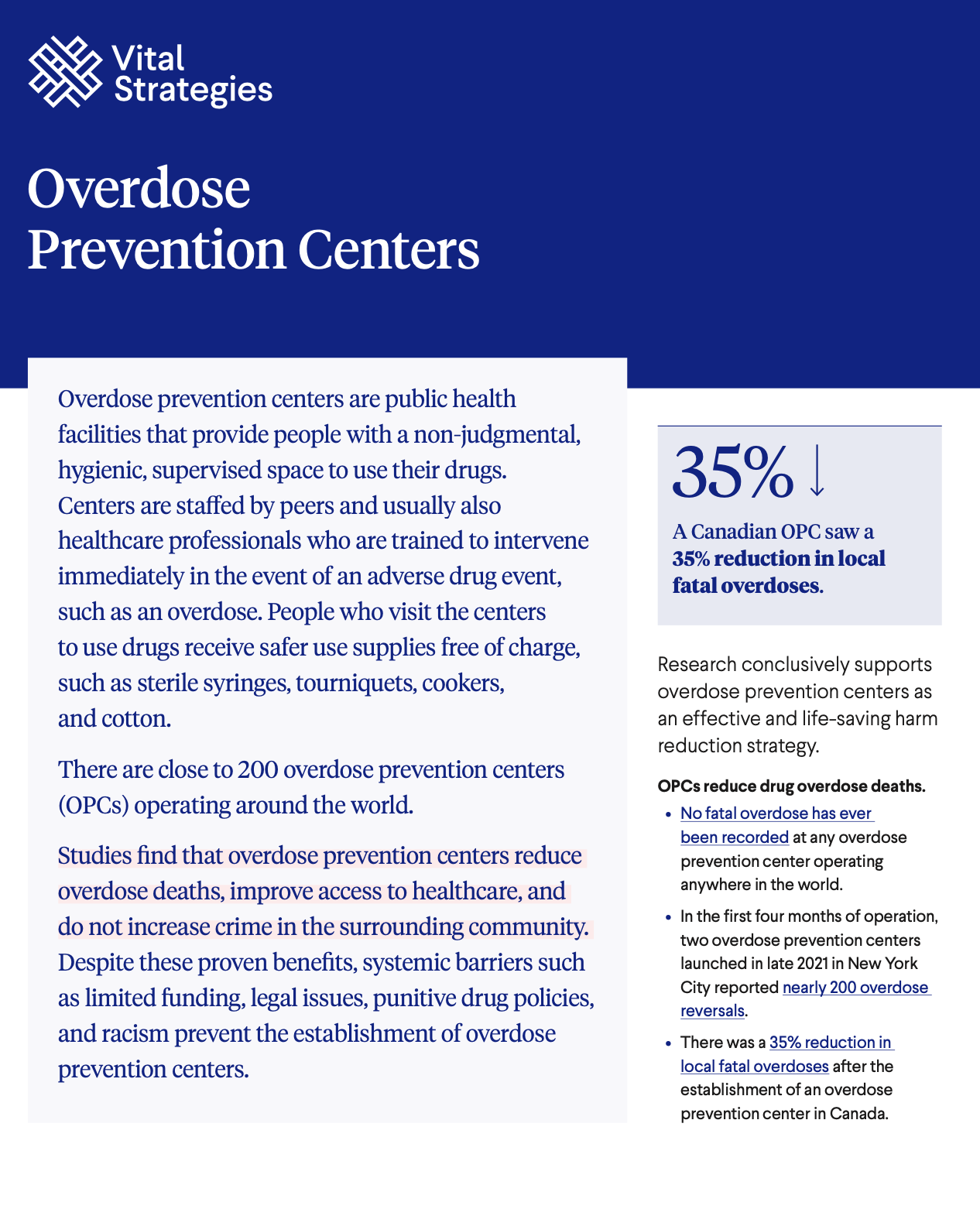Overdose prevention centers are public health facilities that provide people with a non-judgmental, hygienic, supervised space to use their drugs. Centers are staffed by peers and usually also healthcare professionals who are trained to intervene immediately in the event of an adverse drug event, such as an overdose. People who visit the centers to use drugs receive safer use supplies free of charge, such as sterile syringes, tourniquets, cookers,
and cotton.
This is one of five facts sheets explaining 5 interventions needed to end the overdoses crisis.
Additional fact sheets include:
Recent Abstracts
Prioritizing Evidence Gaps: Air Pollution and Health Impacts of Climate Action
Raising Alcohol Taxes to Reduce Harm: Fact Sheets for Brazil
How the Alcohol Industry Steers Governments Away From Effective Strategies to Curb Drink…
Analysis of the Efficacy of Alcohol Industry-Sponsored Drink-Driving Campaigns
Messaging Recommendations for Effective Road Safety Campaigns: Lessons From Formative Research for Drink…
Testimonials: Personal stories that have the power to save lives on the road
Knowledge, Attitudes, and Practice Study on Lead Poisoning and Pollution in Indonesia
Improving Civil Registration and Vital Statistics Systems in French-Speaking Countries: Opportunities and Challenges
Strengthening the Civil Registration and Vital Statistics (CRVS) System in Colombia
Estimation of the direct and indirect costs attributable to alcohol consumption in Brazil
